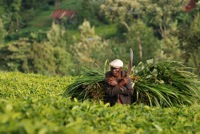Difference between revisions of "Subsistence"
m (Text replacement - "http://nordan.daynal.org" to "https://nordan.daynal.org") |
m (Text replacement - "http://" to "https://") |
||
| Line 3: | Line 3: | ||
==Origin== | ==Origin== | ||
[https://nordan.daynal.org/wiki/index.php?title=English#ca._1100-1500_.09THE_MIDDLE_ENGLISH_PERIOD Middle English], from Late Latin ''subsistentia'', from ''subsistent''-, ''subsistens'', present participle of ''subsistere'' | [https://nordan.daynal.org/wiki/index.php?title=English#ca._1100-1500_.09THE_MIDDLE_ENGLISH_PERIOD Middle English], from Late Latin ''subsistentia'', from ''subsistent''-, ''subsistens'', present participle of ''subsistere'' | ||
| − | *[ | + | *[https://en.wikipedia.org/wiki/15th_century 15th Century] |
==Definitions== | ==Definitions== | ||
*1a : the minimum (as of [[food]] and [[shelter]]) necessary to [[support]] [[life]] | *1a : the minimum (as of [[food]] and [[shelter]]) necessary to [[support]] [[life]] | ||
| Line 10: | Line 10: | ||
A '''subsistence''' economy is a non-monetary economy which relies on natural resources to provide for basic needs, through [[hunting]], gathering, and subsistence [[agriculture]]. "Subsistence" means supporting oneself at a minimum level; in a subsistence economy, economic surplus is minimal and only used to trade for basic goods, and there is no industrialization. | A '''subsistence''' economy is a non-monetary economy which relies on natural resources to provide for basic needs, through [[hunting]], gathering, and subsistence [[agriculture]]. "Subsistence" means supporting oneself at a minimum level; in a subsistence economy, economic surplus is minimal and only used to trade for basic goods, and there is no industrialization. | ||
| − | In the [ | + | In the [https://en.wikipedia.org/wiki/History_of_the_world history of the world], before the first [[cities]], all humans lived in a subsistence economy. As urbanization, civilization, and [https://en.wikipedia.org/wiki/Division_of_labor division of labor] spread, various societies moved to other economic systems at various times. Some remain relatively unchanged, ranging from [https://en.wikipedia.org/wiki/Uncontacted_peoples uncontacted peoples], to poor areas of [https://en.wikipedia.org/wiki/Developing_countries developing countries], to some cultures that choose to retain a [https://en.wikipedia.org/wiki/Traditional_economy traditional economy]. |
| − | Capital can be generally defined as [[assets]] invested with the [[expectation]] that their [[value]] will increase, usually because there is the expectation of [[profit]], rent, interest, royalties, capital gain or some other kind of return. However, this type of economy cannot usually become wealthy by [[virtue]] of the system, and instead requires further investments to stimulate economic growth. In other words, a subsistence economy only possesses enough goods to be used by a particular nation to maintain its [[existence]] and provides little to no surplus for other investments. Therefore, this type of economy aims to create economic [[stability]] so that capital can be accumulated and the [[inevitable]] economic surplus can be invested in other potentially lucrative business ventures.[ | + | Capital can be generally defined as [[assets]] invested with the [[expectation]] that their [[value]] will increase, usually because there is the expectation of [[profit]], rent, interest, royalties, capital gain or some other kind of return. However, this type of economy cannot usually become wealthy by [[virtue]] of the system, and instead requires further investments to stimulate economic growth. In other words, a subsistence economy only possesses enough goods to be used by a particular nation to maintain its [[existence]] and provides little to no surplus for other investments. Therefore, this type of economy aims to create economic [[stability]] so that capital can be accumulated and the [[inevitable]] economic surplus can be invested in other potentially lucrative business ventures.[https://en.wikipedia.org/wiki/Subsistence] |
[[Category: Economics]] | [[Category: Economics]] | ||
Latest revision as of 02:32, 13 December 2020
Origin
Middle English, from Late Latin subsistentia, from subsistent-, subsistens, present participle of subsistere
Definitions
- b : a source or means of obtaining the necessities of life
Description
A subsistence economy is a non-monetary economy which relies on natural resources to provide for basic needs, through hunting, gathering, and subsistence agriculture. "Subsistence" means supporting oneself at a minimum level; in a subsistence economy, economic surplus is minimal and only used to trade for basic goods, and there is no industrialization.
In the history of the world, before the first cities, all humans lived in a subsistence economy. As urbanization, civilization, and division of labor spread, various societies moved to other economic systems at various times. Some remain relatively unchanged, ranging from uncontacted peoples, to poor areas of developing countries, to some cultures that choose to retain a traditional economy.
Capital can be generally defined as assets invested with the expectation that their value will increase, usually because there is the expectation of profit, rent, interest, royalties, capital gain or some other kind of return. However, this type of economy cannot usually become wealthy by virtue of the system, and instead requires further investments to stimulate economic growth. In other words, a subsistence economy only possesses enough goods to be used by a particular nation to maintain its existence and provides little to no surplus for other investments. Therefore, this type of economy aims to create economic stability so that capital can be accumulated and the inevitable economic surplus can be invested in other potentially lucrative business ventures.[1]
